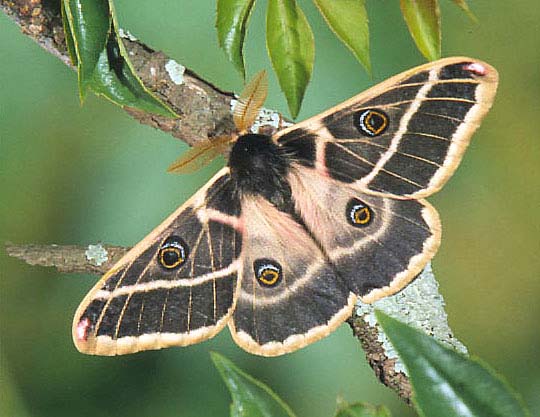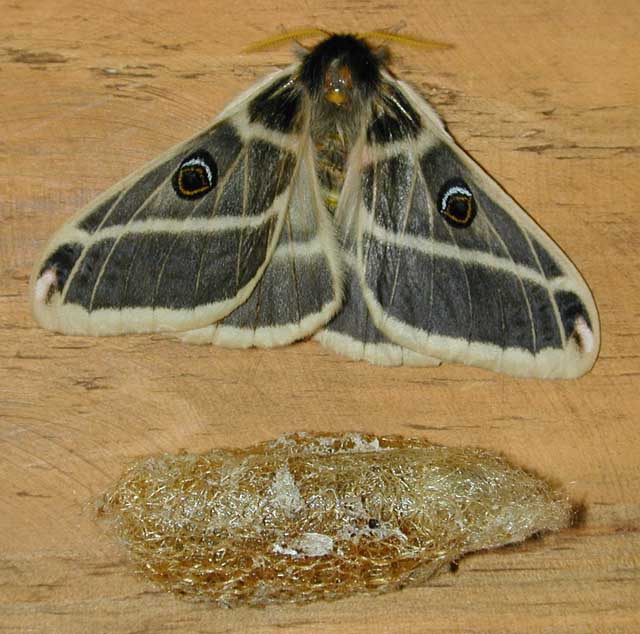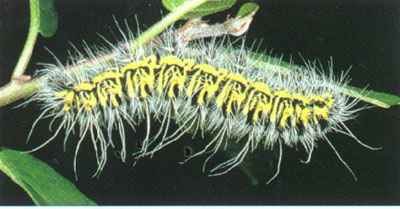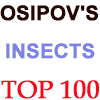Agapema homogena
Agapema homogena
Dyar, 1908

Agapema homogena (male) courtesy of Leroy Simon.
DISTRIBUTION:
Agapema homogena, the Rocky Mountain Agapema
(wingspan: 2 7/8 - 3 7/8 inches), flies in
forests above 4400 feet in Colorado, Arizona, New Mexico and western Texas south to
Mexico City.
In Mexico it is reported from the states of
Chihuahua;
Distrito Federal;
Hidalgo;
Mexico: Ixtapaluca: Zoquiapan; Almoloya de Juárez: Rio Frio;
and Veracruz: Ixtaczoquitlán: Puente Metlac.
Other Mexican states where there are
populations probably include Zacatecas, Aguascalientes, Guanajuato
and Gueretaro.

Agapema homogena female and cocoon, SE Arizona, courtesy of Mike van Buskirk.
FLIGHT TIMES AND PREFERRED FOOD PLANTS:
This single brooded species flies from May
through July in the U.S. and from May through September in Mexico.
Larvae feed in groups
on Rhamnus californica ursina (California coffeeberry), Salix exigua (Sandbar willow), and
Ribes cereum (Wax currant).
ECLOSION, SCENTING AND MATING:
Moths emerge in the morning and mate after sunset.

Female copyright Kirby Wolfe
EGGS,LARVAE,COCOONS AND PUPAE:
Eggs are deposited in large clusters on host plants.
Gregarious larvae feed in large groups which become progressively
smaller as larvae develop.
|

|
Larvae leave the host plant to pupate in any kind of crevice they can
find. Pupae have been found in pine bark crevices, in man made
structures, amongst leaf litter and other debris.
Listed below are the primary food plant(s) and alternate food plants
listed in Stephen E. Stone's Foodplants of World Saturniidae. It is hoped
that this
alphabetical listing followed by the common name of the foodplant will
prove useful. The list is not exhaustive. Experimenting with closely
related foodplants is worthwhile.
Rhamnus californicus.....
Rhamnus frangula
Ribes alpinum
Ribes cereum
Salix exigua
|
California coffee-berry
Alder buckthorn
Alpine currant
Wax currant
Sandbar willow
|
Return to Main Index
Goto U.S.A./Canada Index
Use your browser "Back" button to return to the previous page.
This page is designed and maintained by Bill Oehlke as
part of the World's Largest Saturniidae Site.
Use your browser "Back" button to return to the previous page.

| 
Support this website and visit other insect sites by
clicking flashing butterfly links to left or right.
|

|







